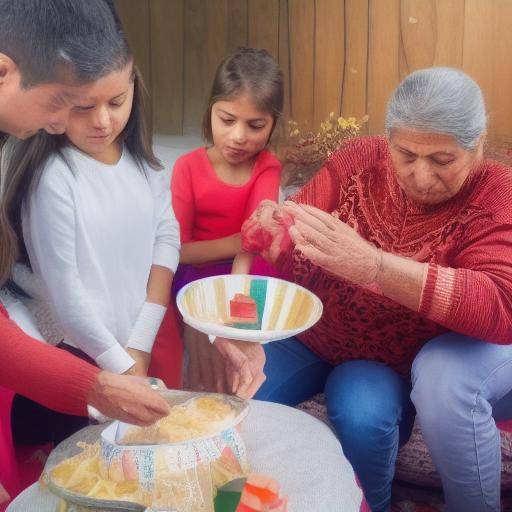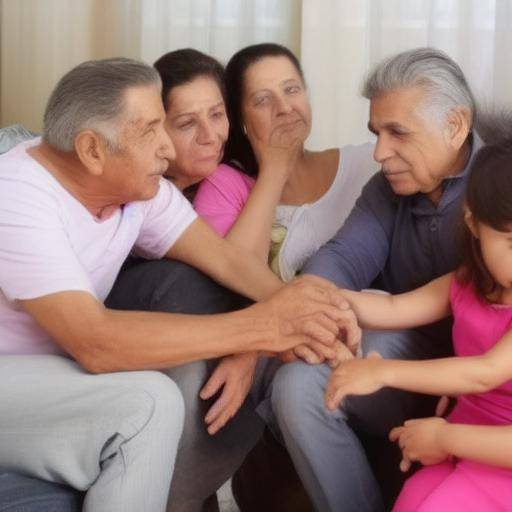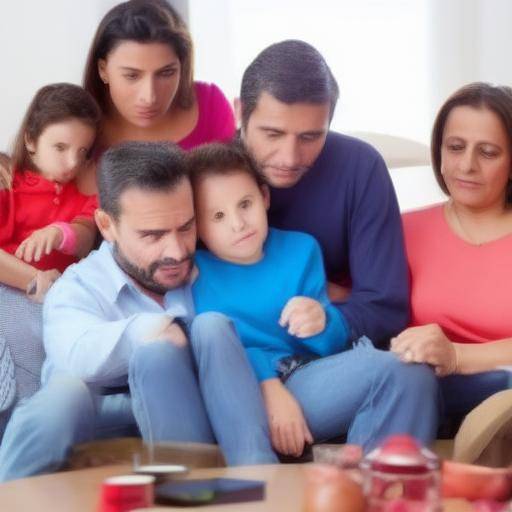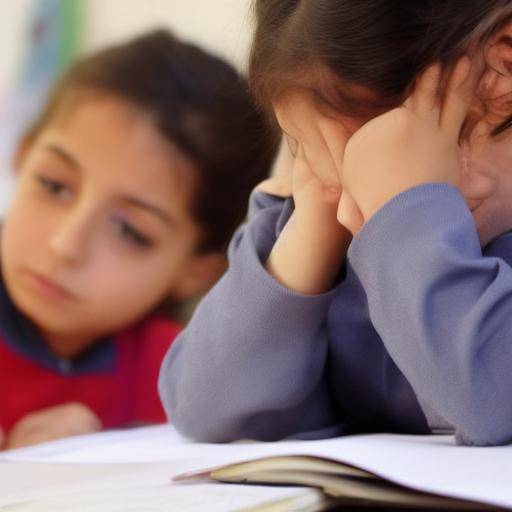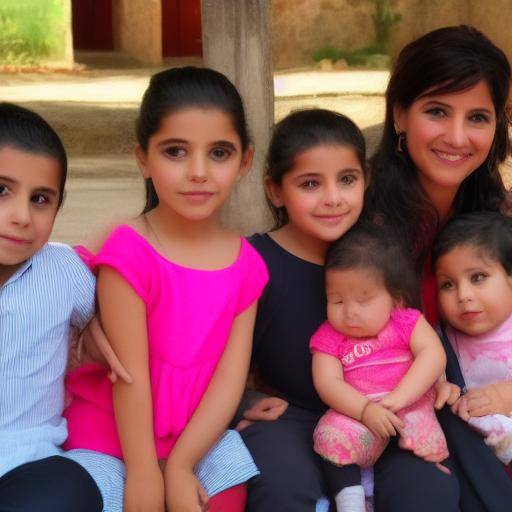
Gender equality is a crucial issue in today ' s society. However, its importance extends far beyond labour, political and social spheres. In fact, it has a significant impact on the fundamental core of society: the family. From how traditional gender roles influence family dynamics to how gender equality can promote healthier relationships, it is crucial to understand and promote gender equality within family unity.
In this article, we will explore the importance of gender equality in the family, analyzing its history, benefits, current challenges, practical applications, future trends and, finally, provide practical advice to promote gender equality in the family environment.
History and Background
Gender equality is a concept that has evolved throughout history in response to changing social and cultural norms. From civil rights movements to advances in education, gender equality has been a central theme in the struggle for equity.
Feminist Revolution and Sociocultural Advancements
The feminist movement has been central to promoting gender equality in the family and society at large. From feminine suffrage to struggles for equal pay and reproductive rights, the path to gender equality has been marked by important historical milestones. In 1979, the United Nations Convention on the Elimination of All Forms of Discrimination against Women (CEDAW) provided a comprehensive legal framework for addressing gender equality in various areas, including the family.
Traditional Gender and Family Dynamic Roles
Traditional gender roles have significantly influenced family dynamics both in the past and in the present. Historically, men have been expected to play supplier roles and women, care roles and household roles. These predefined roles have not only limited individual opportunities, but also impacted family relationships and decisions.
Changes in Family Dynamics
Over the years, family dynamics have experienced significant changes, with greater recognition of family diversity and an evolution in gender roles. The incorporation of women into the labour market, the increase of single parent families and the recognition of LGBTQ+ rights have contributed to the transformation of family dynamics.
Analysis in Deep
Benefits of Gender Equality in the Family
The promotion of gender equality in the family entails a number of benefits both individually and collectively. The children of families with gender-equal roles tend to have better self-esteem, as well as a more open and respectful view of differences. In addition, it has been shown that gender equality-based relationships have fewer conflicts and greater satisfaction.
Current Challenges
Despite progress, significant challenges remain in promoting gender equality in the family. Ingrained stereotypes, social pressures and cultural expectations continue to influence family decisions and dynamics. Gender pay gaps and the unequal distribution of domestic work also pose significant obstacles to achieving domestic equity.
Current Trends and Futures
At present, there is an increase in the adoption of family dynamics based on gender equality. Active co-paternity, balance in the distribution of responsibilities and the promotion of the individual autonomy of each family member are emerging trends that reflect greater commitment to gender equality in the family.
Comprehensive review
Practices and Best Practices
The implementation of gender equality in the family can be carried out through various strategies. The establishment of equitable expectations, the fair sharing of domestic responsibilities and the promotion of open communication are essential for fostering equal family dynamics. Examples of good practices include joint planning of family activities, shared decision-making and mutual support in the pursuit of individual goals.
Future Perspectives and Trends
Future trends aim at greater recognition of family diversity, gender-based approaches in child-raising and the elimination of gender stereotypes. In addition, greater momentum is envisaged for the implementation of policies that promote gender equality in the family at the governmental and organizational levels.
Comparative analysis
Gender equality, family and gender interact in complex and multifaceted forms. Although they are different concepts, their mutual influence is evident in different contexts. We will then examine the similarities, differences and synergies between these concepts from a holistic perspective.
Similarities and Variances
While gender equality and the family can agree on their goal of equitable relationships, it is important to recognize their fundamental differences. Gender equality focuses on eliminating gender-based disparities, while the family encompasses a wider spectrum of relational dynamics. However, both are interrelated, as promoting gender equality in the family contributes to the creation of more harmonious and fair family environments.
Synergies and Opportunities
The promotion of gender equality in the family not only benefits individual members, but also generates positive impacts on society as a whole. By fostering gender equity from childhood, the foundations for building more just and comprehensive societies are laid. In addition, gender equality in the family can serve as a catalyst for the transformation of broader social norms and expectations.
Practical Tips and Actions
Promoting gender equality in the family requires active and multifaceted commitment. Some practical steps include fostering open communication, challenging traditional gender roles, and supporting the individual aspirations of each family member. In addition, the modelling of equitable behaviour and the awareness of gender stereotypes are critical to creating a significant impact on family unity.
Conclusions
In conclusion, gender equality in the family is a fundamental pillar for the construction of healthy relationships, the development of self-sustained children, and the creation of equitable societies. As we continue to move towards an inclusive future, it is crucial to recognize the importance of promoting gender equality in the family as an essential component of social justice and equity.
Frequently asked questions
Why is gender equality in the family important?
Gender equality in the family is crucial because it lays the foundation for equitable relationships, promotes the development of self-esteem and individual autonomy, and contributes to the creation of more just and compassionate societies.
What are the most common challenges in promoting gender equality in the family?
Some common challenges include the rooted presence of traditional gender roles, the unequal distribution of domestic responsibilities and cultural expectations about gender roles.
How can we promote gender equality in child-rearing?
Promoting gender equality in child-rearing can be achieved by fostering open communication on gender stereotypes, challenging traditional roles and modeling equitable behaviour among all family members.
What is the role of gender equality in building more equitable societies?
Gender equality in the family contributes to building more equitable societies by establishing solid foundations for the elimination of gender-based disparities and the promotion of fair and harmonious relationships at the individual and collective levels.
What role do government policies play in promoting gender equality in the family?
Government policies can play a crucial role in providing a legal and supportive framework for the promotion of gender equality in the family. This includes policies related to parental leave, equal pay and protection against gender-based discrimination.
How can we promote gender equality in an inclusive manner within the family?
Inclusive promotion of gender equality within the family involves recognizing and respecting gender diversity, challenging stereotypes and creating an environment that promotes equal participation and individual empowerment, regardless of gender.
In short, understanding the importance of gender equality in the family is critical to advancing towards a more equitable and compassionate future. By promoting relations based on equity and mutual respect, they form the basis for more just and understanding societies. Implementing equitable practices and challenging traditional gender roles are essential steps on the path to gender equality in the family and beyond.
With up-to-date and relevant information, addressing common questions and offering practical recommendations and useful advice, this article provides a comprehensive insight into the importance of gender equality in the family, aimed at informing and guiding readers interested in this crucial issue.



